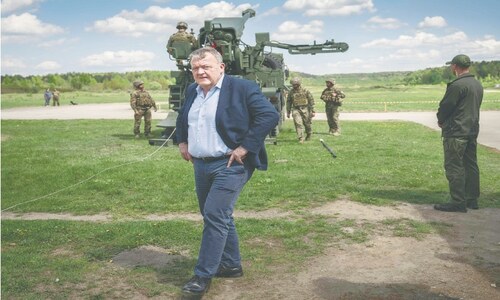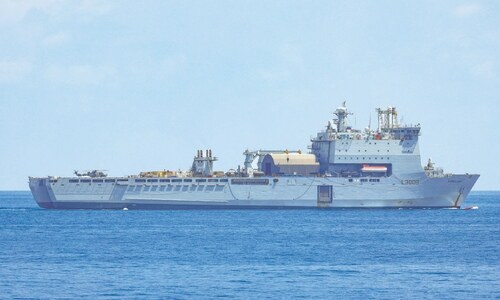VIENNA (Austria), Dec 4: Thieves in Mexico have stolen a truck carrying “extremely dangerous” radioactive material used in medical treatment, the UN atomic watchdog said on Wednesday.
The vehicle was transporting a “teletherapy source” containing cobalt-60 from a hospital in the northern city of Tijuana to a radioactive waste storage centre when it was stolen in Tepojaco near Mexico City on Monday, the International Atomic Energy Agency said.
“At the time the truck was stolen, the source was properly shielded.
However, the source could be extremely dangerous to a person if removed from the shielding, or if it was damaged,” an IAEA statement said.
The IAEA said it was informed about the theft by Mexico’s National Commission for Nuclear Safety and Safeguards (CNSNS), which said the radioactive material posed no risk provided the container was not broken or tampered with. It said the truck was stolen at a service station.
A search was under way in six Mexican states and in Mexico City for the white Volkswagen Worker truck, the CNSNS said in a statement. It gave phone numbers for anyone with information to call and released photos of the steel-reinforced wooden crate carrying the material.Experts have long warned about the risks posed by the large amounts of radioactive material held in hospitals, university campuses and factories, often with little or no security measures to prevent them being stolen.
Such material is highly dangerous to human health if not properly handled.
Cobalt-60 “has figured in several serious source accidents including fatalities because the material was obtained and handled by people who were not aware of its danger,” said Mark Hibbs, analyst at the Carnegie Endowment for International Peace.“There are many thousands of these sources worldwide. There is in most countries a regime to keep them safe and secure, but if they are stolen or lost, many people would be unaware that the radioactive contents locked up inside could threaten their lives,” Hibbs said.
More worryingly though, such material could in theory be put in a so-called “dirty bomb” — an explosive device spreading the radioactive material over a wide area.
Major international efforts have been made since the end of the Cold War in 1991 and the Sept 11, 2001 attacks in the United States to prevent nuclear material falling into the wrong hands.
US President Barack Obama hosted a summit in 2010 on the subject, followed by another in Seoul last year. A third is planned in The Hague in March 2014. IAEA chief Yukiya Amano said in July at a major nuclear security conference that many countries had taken effective measures but warned against a “false sense of security”.—AFP
“If a ‘dirty bomb’ is detonated in a major city, or sabotage occurs at a nuclear facility, the consequences could be devastating,” Amano said.—AFP
















































Dear visitor, the comments section is undergoing an overhaul and will return soon.